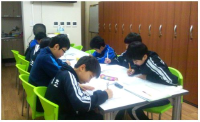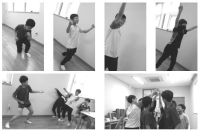The purpose of this study was to describe psychological changes and variables of injured elite athletes during sport injury rehabilitation. 5 injured elite athletes were selected as participants, and open-ended questionnaires, participant observation, and in-depth interview were used for collecting data. Results from the data were analyzed through transcription, coding, and categorization with inductive method. To validate the results of this study, triangulation, in-depth description, member checks, and peer debriefing were used, and findings of this study were as follow. The participants showed negative psychological state such as fear of return to play and anxiety during the initial rehabilitation program, but their psychological state was changed positively such as recovery of confidence and desire of return to play at the end of program. However, the specific psychological changes of each participant showed several differences according to participant's surrounding environment and situation during the rehabilitation program. All findings have important implications for implementing and developing rehabilitation program, so needs to be investigated further.

The purpose of this study was to verify the effect on elementary school students in the exercise start stage by performing a sport psychological skill training to improvement of psychological skill and life skill. Participants were eight elementary school boys volleyball player. The program consisted of psychological skills and life skills in educational counseling model of Visek et al(2009). It was conducted 40-50 minutes a session in total for 22 sessions. Data was collected through a psychological test, worksheet and participant observation, in-depth interviews. The collected data was analyzed to verify difference by paird t-test after pre-middle-post test and to extract meaningful data category. Quantity analysis showed that a result of sport psychological skill test proved a significant difference in willingness to overcome, confidence, concentration, anxiety regulation. Life skill test were no significant differences in all factors. However, the rise of scores was observed on result of the pre-middle paired t-test of life skill during season. Quality analysis showed possibility of goal setting, concentration on the routine, decrease of competitive anxiety, increase of positive thinking, self-understanding and understanding of others, promotion of communication among team members. This sport psychology skill training had a significant effect on the psychological skills of elementary players change. But it seems to be necessary life skills in a more through review of the information.


